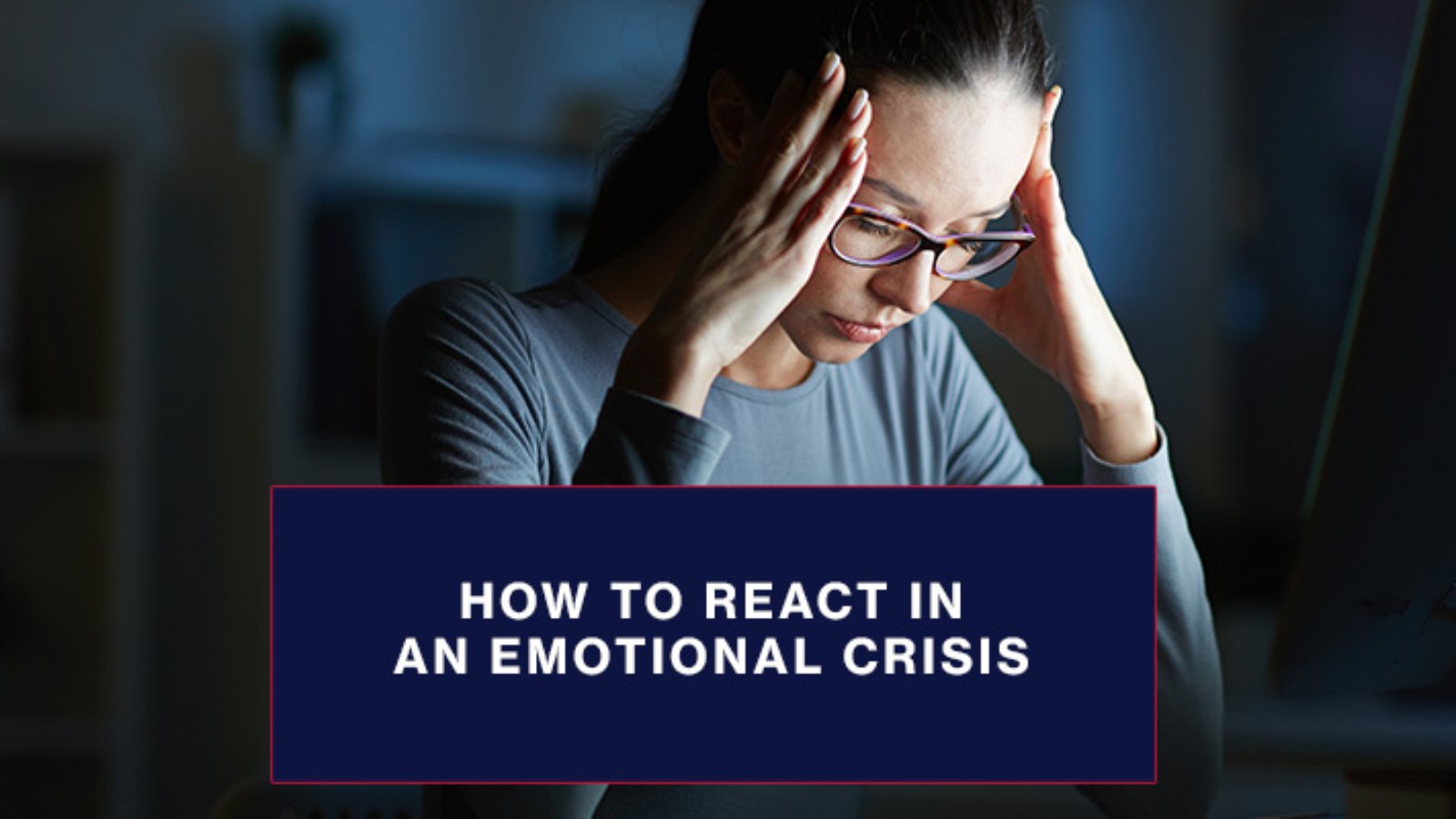Emotional crises by situations that put pressure on us will have an impact on our whole self. That is why I don’t recommend that you let it go unnoticed when you feel you can’t get through something easily. You have to keep in mind that the more serious the event, the greater the effect on you.
Emotional reactions during emotional crises
Emotional crises will awaken many reactions that are impossible to ignore. These reactions usually include physical, cognitive, and interpersonal aspects.
A breakup is not the same as the death of your partner, a vehicle accident in which there were only material losses is not the same as one in which there were serious injuries.
Emotional
Emotions will be the protagonists in crises. It is also in these moments when we will sincerely understand how powerful they are and how they define us. When you go through a crisis, you will experience emotional reactions. They ca be shock and an overwhelming feeling where you may not believe what just happened to you.
Reactions can also include emotions such as anger or irritability for having witnessed the event. The pain will be inevitable, as is the guilt for not having been able to do more. The emotions will be there throughout the recovery process, and when it comes to very serious events, these emotions will return on the anniversaries of the events.
Cognitive
With the cognitive aspect, you experience feelings such as confusion, indecision, lack of memory, and trouble concentrating. Also, memory plays a very important role in the development of these events because you will have memories accompanied by an increased heart rate or excessive sweating.
Depending on the type of event that triggered this emotional crisis, these can be a milder or more intense.
Physical
Our emotions are connected to our body. This is something I always emphasize to my patients. Everything is connected, and that is why we have physical reactions during emotional crises.
Physical reactions can include tension, headaches, or fatigue/tiredness. Body aches and pains are not uncommon, nor are considerable changes in both sleep and eating habits.
Interpersonal
Regarding interpersonal reactions, there could be reactions like distrust, withdrawal, conflict, sensitivity, or feeling rejected. Depending on the age of the person, he/she could develop problems at school or at work.
What to do after a crisis
Recovering your emotional balance and rebuilding your life after a traumatic event does not happen quickly. But it is true that taking certain attitudes will be of great help when dealing with the issue.
Basic tips
Here are some basic tips on how to act after a crisis that may help you:
- There is no right or wrong way to feel. No one can tell you how to feel about a traumatic event. Humans do not all react to trauma the same way.
- Feelings cannot be ignored. The more you try to hide your feelings, the longer the recovery process will take. Just because you feel it is better to wait to deal with your emotions doesn’t mean that this is the right thing to do. I can assure you that those feelings may become more intense if they are not dealt with in time.
- Don’t obsessively relive the event. Your nervous system will feel overwhelmed if you continuously evoke the traumatic event. You will not be able to think clearly when you have it replaying over and over again. You will say that you are not able to control it, so a suggestion I give you is to keep yourself distracted by reading or cooking. Whatever activity you find rewarding.
- Get back into your routine. Routines are comfortable and comforting. So getting back into them will help you feel a little better. Events like these may be so big that they force you to change your schedule at school or work. But you can still find a routine to apply to meals or bedtime.
- You do not have to make important decisions at this stage: Do not put pressure on yourself by making important decisions at work, at home, or in your family. Making these types of decisions while traumatized will only cause more stress. Wait until you can think clearly enough to make the right decisions.
How to help children cope with emotional crises
Children are fragile and need our protection, and you should know that some children react immediately in a crisis, while others take much longer. Also, the signs of emotional distress are closely related to the child’s age. The same goes for the child’s previous experiences and how he or she deals with stress.
One way to know how your child will act in such a situation is how you act. That’s right, children try to imitate adults at times like these, so showing them security and calmness will give them better support.
As a parent or older figure, you need to convey reassurance and confidence. One recommendation I consistently make is to talk to children about what is happening. Understand that the age of the child will influence the amount of information you give them and how you give it to them. Simpler is better.
Later, as the event passes, it will be time to address all of their behaviors and help them cope with the consequences of what they have experienced. If the child asks questions, you have to answer them. I think it is a good idea to encourage them to talk about their fears and any doubts they may have.


